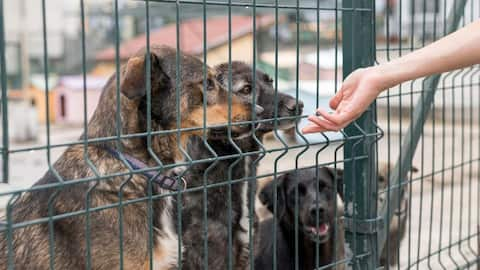Here's what you should do when you witness animal cruelty
What's the story
Witnessing animal cruelty can be heart-wrenching. It is crucial to know what steps need to be taken when we witness this critical issue. Each step is a pledge to safeguard the voiceless and ensure that one's efforts resonate with the resounding call for justice and compassion in the realm of animal welfare. Dr. Shantanu Kalambi, chief veterinary officer at Supertails, shares some tips.
Tip 1
Document the incident
If it is safe to do so, start by documenting the incident. "Use your smartphone to take photos or record videos discreetly. Capture details like the location, date, and time. Document any identifiable features of the abuser and gather as much information as possible on the type of cruelty occurring. This evidence can be vital for legal purposes," suggests Dr. Kalambi.
Tip 2
Contact local authorities
The next step is to report the incident to local law enforcement or animal control immediately. "Provide them with the evidence you have collected and a detailed description of what you witnessed. Include any relevant information about the location and individuals involved," he states. Quick action can help authorities intervene and prevent further harm to the animals.
Tip 3
Reach out to Animal Welfare Organizations
"Contact local animal welfare organizations or humane societies in your area. They may have resources and connections to assist in investigating and addressing cases of animal cruelty," recommends the expert. He also suggests providing them with the information you have gathered and inquiring about the appropriate steps to take in your specific situation. Contribute to the welfare of animals by collaborating with these organizations.
Tip 4
Maintain your safety
While it is essential to intervene when possible, your safety should always be a priority. "If directly confronting, the abuser could jeopardize your well-being. Therefore, it is better to focus on documenting the incident and contacting authorities. Do not put yourself in a dangerous situation that could escalate tensions for you and your loved ones," mentions Dr. Kalambi.
Tip 5
Let society know
"Share your documented evidence and details about the cruelty, encouraging others to spread the word. Tag relevant authorities, animal welfare organizations, and local news outlets to increase the chances of a swift and effective response," further adds the chief veterinary officer. According to him, social media can be a powerful tool for raising awareness and mobilizing support.
Tip 6
Raise your voice
Dr. Kalambi urges people and local communities to "advocate for stronger animal cruelty laws and penalties in your region." "Stay informed about local and national legislation related to animal welfare, and support organizations working towards legislative changes. Engage with local policymakers to express the importance of stricter laws to protect animals from abuse," he concludes.
